Bringing a puppy home for the first time is a beautiful experience for you and the family. The puppy has endless amounts of energy for 20 minutes and then crashes into a deep sleep.
Oftentimes, when you ask a breeder for recommendations for the puppy’s diet, they will give you a pack of dog food that includes kibble and canned food. But will this food help your puppy grow into a healthy dog?
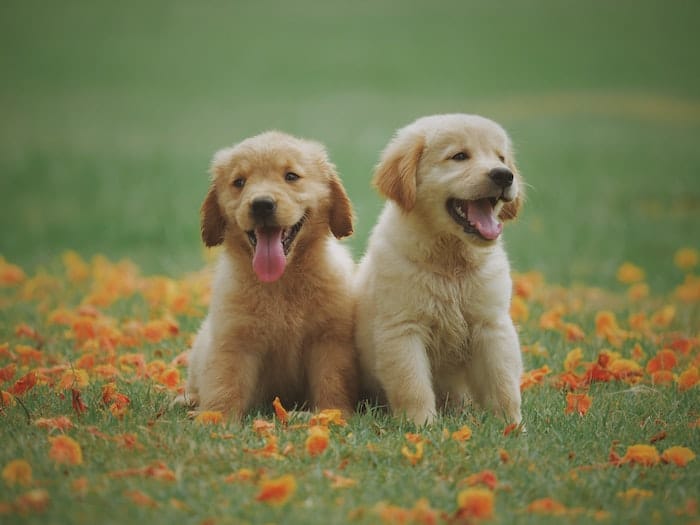
After doing a lot of research on finding the right puppy food for my German Shorthaired Pointer, I came up with this article to help other dog owners find the correct food for their small to medium-sized puppies.
Lets bound into the article and learn what’s the right way to feed your puppy and more such as:
- Should you feed your puppy kibble?
- Can puppy’s drink anything other than water?
- Should a puppy’s diet be varied?
- What foods are dangerous for your puppy?
What are the best times to feed a puppy?
Once you have established a routine, it’s a good idea to feed your puppy early morning as you have your first coffee of the day from around 6.30 to 7. Am. Then again at noon time for the puppy’s midday meal and then around 5 pm, much like an adult human in many respects.
If your puppy is eating fast, you may need to introduce an additional meal mid-morning and mid-afternoon. Don’t forget your puppy is growing and needs a lot of nourishment to develop into a healthy dog.
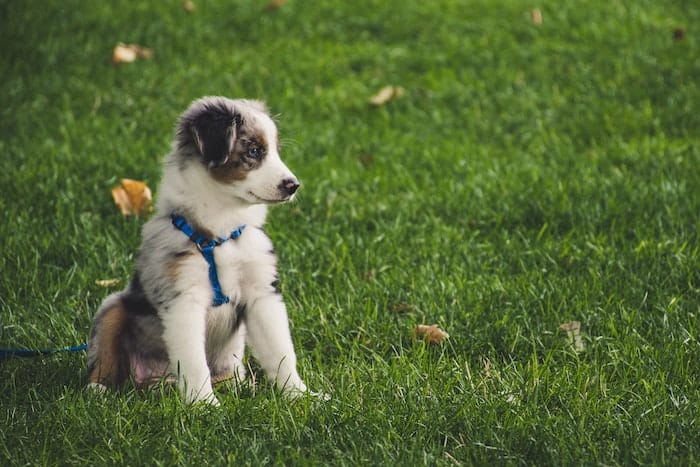
Can I feed my puppy normal dog food or human food?
Treat your puppy like a growing baby that needs different nutrients. Puppies grow at a colossal rate, and without the correct amount of calorie-dense food packed with healthy nutrients, your puppy will lag behind in its development.
Use specific food designed for puppies, and add some treats if you wish.
What can I feed my puppy at home?
A homemade puppy diet should contain the proper balance of:
- Proteins, such as chicken, turkey fish, lean beef, and some offal.
- For your puppy to maintain energy levels, the puppy will also need carbohydrates such as potatoes, pasta, and rice.
- Your puppy will need some fat content from meats, and sometimes vegetable oil is a good choice to mix in with the feed in a small amount.
- Give your puppy some vegetables like carrots, green beans, and peas. Your puppy needs the vitamins from these vegetables.
- If you are preparing your puppy’s food, then add Vitamin and mineral supplements that are high quality and from a reputable company. Your veterinarian should be able to tell you the best ones to use.
Or you can buy specialized puppy foods from your pet store, again select the best brand available.
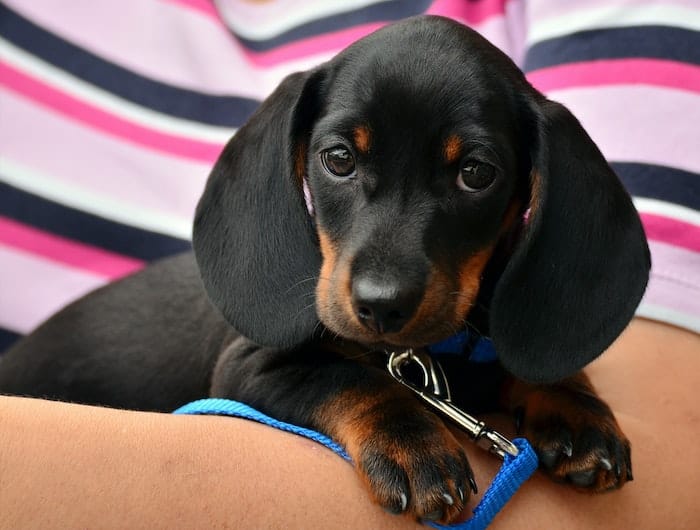
Should your puppy eat kibble?
Your puppy’s mouth is developing and is very soft, so a hard kibble will irritate the puppy’s mouth and may even damage its teeth.
If you do introduce kibble, do it sparingly in a wet meal, so it absorbs some of the moisture from the food and becomes soft.
What can puppies drink besides water?
Never be tempted to give your puppy cows milk; it will upset their stomach and lead to further serious health problems.
Puppies are normally fine with water as their main supply of liquid, but if you want to make a change and spoil the puppy, you could try:
- Beef broth or chicken broth, obviously no hot food.
- Vegetable juice such as carrot juice, beetroot, kale, and celery, as long as they are packed with nutrients, will be good for your puppy.
- You could try fruit juice.
The problem with fruit juice is it is full of fructose. If you notice your puppy becoming over chubby and a little plumper, you may be feeding the puppy too much.

Can puppies have cheese?
Yes, your puppy can eat cheese, and the puppy will love the taste and want as much as it can eat, making it the perfect snack for training.
Hold the cheese back for the occasional treat and use the puppy’s innate desire to eat as much as possible and use it as a training aid.
Can dogs eat mashed potatoes?
Yes and no, If you want to feed your dog mashed potatoes, make sure the potatoes are not salted or have added seasoning. Don’t feed your puppy boiled potatoes, only roast and they must be cooled.
You need to be aware that the nutritional content of potatoes is very low, and your puppy will not thrive if this is the main staple of its diet.
Can puppies eat scrambled eggs?
It’s a great food for your puppy, high in protein and vitamins. However, do not feed your puppy eggs that are runny or not thoroughly cooked. It could make your puppy sick.
Apart from the protein element of eggs, they contain linoleic acid and vitamin A which is perfect for your puppy’s coat.
Is bread bad for dogs?
No, your puppy can eat bread, but why would you introduce vitamin-deficient food into your growing puppy’s diet? Ok, it’s easy to give your puppy the end of your sandwich, and the puppy will enjoy sharing your food.
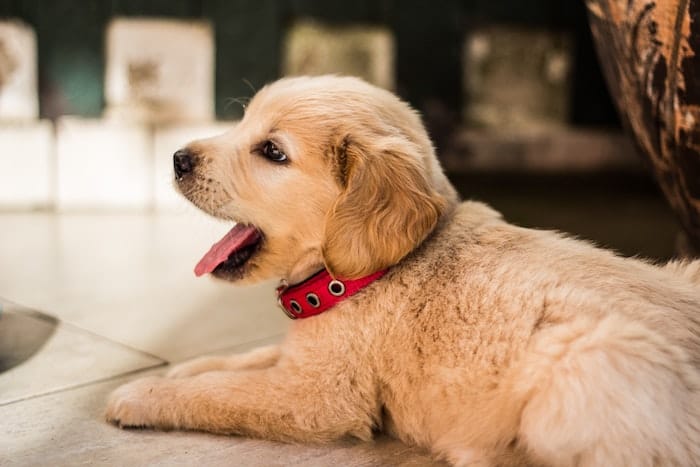
Should a puppy’s diet be varied?
There is a misconception that dogs need a varied diet. They are happy to have the same food in front of them daily. Imagine when dogs and puppies were wild. Their diet would be predominantly raw meat from a kill or scavenging.
However, alternating your puppy’s diet is a reasonable thing to do to make sure the puppy remains interested in its food.
What foods are dangerous for my puppy?
The list is long, and you need to know what not to let your puppy eat:
- Avocados
- Chocolate
- Grapes
- Raisins
- Macadamia nuts
- Raw bread dough made with a yeast
Avoid giving your puppy onions, garlic, chives, milk, alcohol, coffee, and caffeine, including tea. Salty foods of any kind, food sweetened with xylitol, such as gum, baked goods, candy. Don’t let your puppy eat your toothpaste.
Many of these products can lead to a potentially serious illness for your puppy, including liver failure.
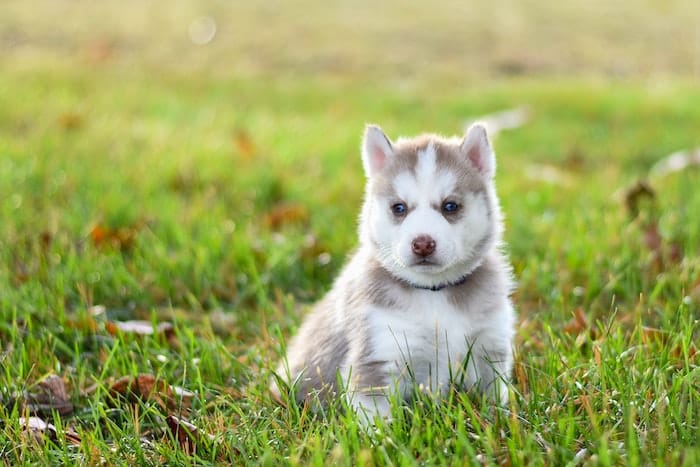
The bottom line
Your new puppy will want to eat almost everything you give it. Try to create a well-balanced diet, which may include purchasing a good quality commercial grade kibble for puppies, then introducing some vegetables and meats to make the meal more interesting.
Once your puppy starts growing, you will need to reduce feeding frequency to maybe twice per day.
Related Reading
